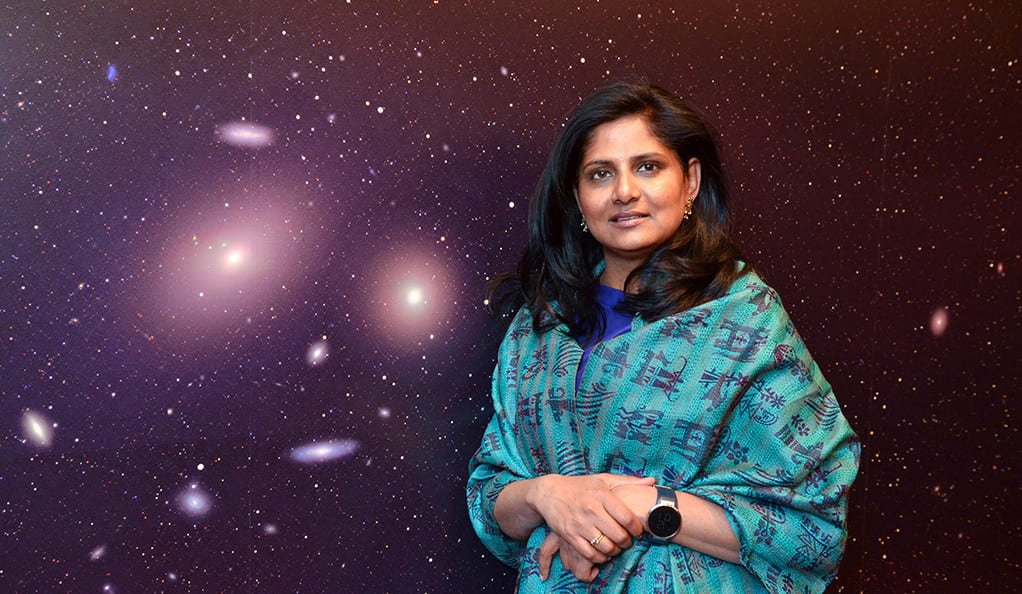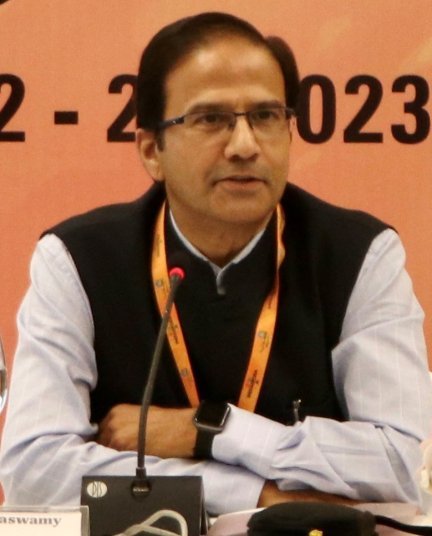Global India Frontiers: Economy, Sustainability, Arts, Innovation & Inclusion
A pan-USA academic conference featuring breakthrough advances, diverse viewpoints and US-India collaborations that are transforming the world!
Conference Co-Chairs:
Anu Ramaswami, Director, M.S. Chadha Center for Global India, Princeton University
Tarun Khanna, Director, Lakshmi Mittal & Family South Asia Institute, Harvard University
M. R. Rangaswami, Founder & Chairman of the Board, Indiaspora
April 12-13, 2024. Princeton University, Princeton, NJ, USA
Aim and Scope: Global India Frontiers is the first pan-USA conference that brings together academics across multiple disciplines to discuss key themes relating to Global India - economy, sustainability, arts, innovation, inclusion and partnerships. The goal is to feature breakthrough advances, share diverse viewpoints and stimulate collaborations with potential to transform the world. The format of the conference is a series of plenary sessions around key themes, interspersed with breakout/networking sessions that facilitate collaboration and discussion. White papers are anticipated on each of the themes. A brief description of the thematic areas is provided on the next page.
Background: The Directors of Princeton University’s M.S. Chadha Center for Global India and Harvard’s Lakshmi Mittal & Family South Asia Institute met in the Fall of 2023 to discuss jointly hosting an academic conference focused on India. The meeting was stimulated by Indiaspora which has long sought to organize an annual meeting of academics of Indian origin in the US to highlight their work and create Indo-US networking opportunities. The Lakshmi Mittal Institute had also been planning to convene a meeting of different US academic centers focused on South Asia. Meanwhile, Princeton’s Chadha Center for Global India was keen to host a conference on themes related to “Global India” - the focus of the Center. Thus, a Steering Committee was convened to launch this first pan-USA Global India Frontiers conference. A preliminary conference agenda with plenary speakers and panelists will be posted by February 28, with substantial room for open discussions and interactions.
Apply by: March 1, 2024. Space is limited to 200 participants. Accepted applicants will be informed by March 15. Apply Here.
Key Themes Related to Global India:
● Economy and Politics: Will India become an economic and political superpower by 2050? India is projected to become the third largest economy in the world by 2030. How can India’s economic growth be robust, inclusive and equitable? What are critical pathways to achieve such inclusive growth (supply chain shifts, manufacturing vs service-led growth, workforce development, etc.)? What milestones and metrics can be used to track progress? How will Indian politics and global geopolitics impact India’s economic trajectory and stature in the world?
● Inclusion: Both USA and India are aspiring toward, and grappling with challenges of, inclusive access and equitable outcomes related to polity, health, and wellbeing. What does research tell us about access and equity in diverse areas such as education, health and politics, in India and the US? What policy and/or community responses are emerging to address social inequality?
● Sustainability: Sustainability has been defined as achieving a good life for all within planetary boundaries. By 2070, India is projected to be the world’s most populous (at 1.7 billion people) and most densely populated countries. How will India achieve wellbeing for all within planetary boundaries - addressing water, land, and soil constraints while also achieving net-zero carbon emissions and biodiversity goals?
● Innovation: What are the breakthrough innovations in STEM, AI and medicine that are transforming our understanding of the natural world and the design of new technologies? How can we harness these innovations for social good? What co-learnings in entrepreneurship, diffusion and governance of new technologies are emerging?
● Arts: What are leading developments in literature, translational works, music and the visual arts from a Global India perspective? How is the diaspora contributing to these developments?
● Partnerships: What new models are emerging to promote US-India partnerships in higher education, research and practice? How can USA and India collaborate on education and training of the next generation of leaders and thinkers? How can India or South Asia Centers in the USA coordinate or collaborate on critical themes.
Conference Co-Chairs
-

Tarun Khanna
Jorge Paulo Lemann Professor, Director, Lakshmi Mittal & Family South Asia Institute, Harvard University
-

Anu Ramaswami
Director, M.S. Chadha Center for Global India; Sanjay Swani 87' Professor of India Studies, Professor of Civil & Environmental Engineering, Princeton University
-

MR Rangaswami
Founder and Chairman of the Board, Indiaspora
Meet the Steering Committee
-

Amita Gupta
-

Hitesh Hathi
Executive Director, Lakshmi Mittal and Family South Asian Institute, Harvard University
-

Sudhir Jain
Vice Chancellor, Banaras Hindu University
-

Sanjeev Joshipura
Executive Director, Indiaspora
-

Ranjana Khanna
Professor of English, Women's Studies, and the Literature Program at Duke University
-

Pradeep Khosla
Adjunct Professor, Electrical and Computer Engineering at Carnegie Mellon University
Chancellor, University of California, San Diego
-

Priya Natarajan
Joseph S. and Sophia S. Fruton Professor of Astronomy and Professor of Physics; Chair Astronomy; Director of The Franke Program in Science and the Humanities at Yale
-
-

Sunder Ramaswamy
Distinguished College Professor of International Economics, Director of International and Global Studies at Middlebury College




